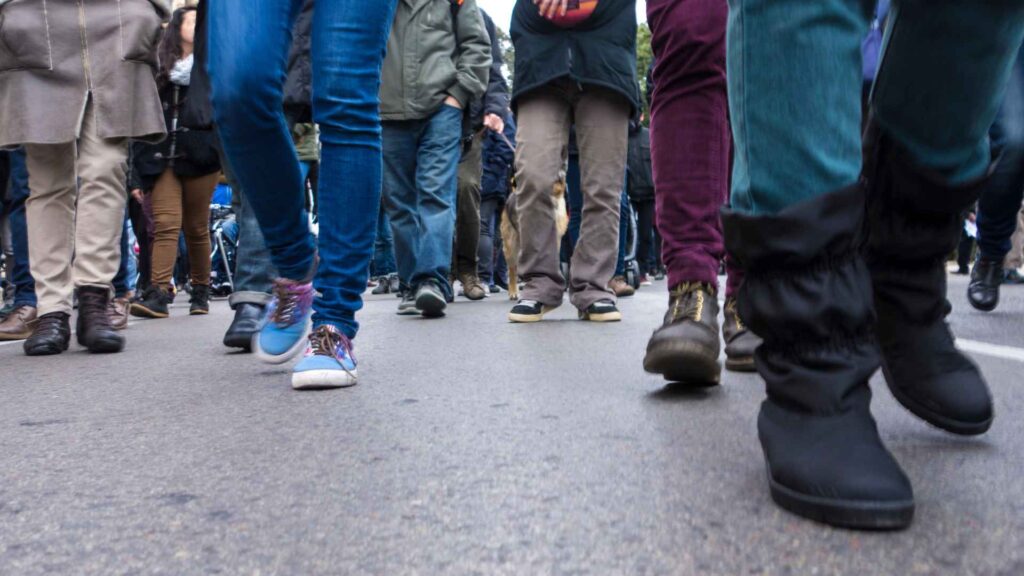As the Summit of the Americas progresses, a caravan of migrants heads towards the United States.
A group of approximately 14,113 people departed Monday from the city of Tapachula, in southern Mexico, bound for the United States. This number is uncertain and has not been verified by official sources. However, according to Luis Rey García Villagrán, migrant advocate and director of the Center for Human Dignity (CDH), "We have a database with 14,113 registered individuals, including more than 3,000 children, 126 pregnant women, and more than 70 adults with disabilities." It is estimated that most of the people are Venezuelan citizens, but there are also Central Americans, Cubans, Haitians, and others who are joining the group as they travel.
Unlike other similar caravans that left Tapachula heading to Mexico City to pressure the government of Andrés Manuel López Obrador to grant them humanitarian visas and work permits, this time the migrants have another objective: to reach the southern border of the United States and ask for asylum.
These are people who are fleeing their country of origin due to various factors, including violence, poverty, climate change, government corruption, drug trafficking, and organized crime.
The caravan aims to reach the United States, although in Mexico the agency, which operates under the command of the Ministry of the Interior, asked the migrants to register and request refugee status with the Mexican Commission for Refugee Assistance (COMAR). The response of most migrants was no, since they feel that the system implemented by this country does not work; however, there are migrants who are carrying out the process without having anything clear yet.
“It’s a bottleneck, a human knot. COMAR takes months to grant an appointment, and then the National Institute of Migration takes even more months to issue documents. During all that waiting time, migrants are left behind, often abandoned on the streets and in the poorest cities of Mexico,” García Villagrán added.
A waiting period, during which work is limited or scarce, but expenses for food, housing, and other necessities don't stop. Migrant caravans departed from Tapachula regularly last year, though this week's caravan appears to be one of the largest. This city, located just across the border from Guatemala, is a popular transit point for migrants traveling from Central America.
Furthermore, the activists accompanying the group emphasized that one of their objectives is to draw the attention of America's leaders to the needs of those fleeing their countries. Finally, the caravan continues its journey despite the challenging terrain, the relentless rains, and the heat that hinders progress.
News report based on information from: Univision and CNN.

